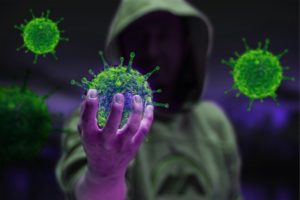Who gets the vaccine credit? |
| Success has many authors, it is said, and so the encouraging data from Pfizer’s experimental Covid-19 vaccine had plenty of people in Washington lining up to take credit.
Vice President Mike Pence said support from the government’s Operation Warp Speed program helped accelerate the development of the vaccine, which was found to be more than 90% effective in preventing symptomatic Covid-19 infections in an interim analysis. It’s true that the vaccine candidate has benefited from government funds. Just not from U.S. money. Pfizer began human testing of the experimental vaccine with its partner BioNTech in April, before Operation Warp Speed’s existence was revealed publicly. The New York-based drug giant hasn’t received money from the White House-backed program for its development, clinical trials, or manufacturing, as top executives have deliberately avoided taking taxpayer dollars.
BioNTech, which is credited for contributing the messenger RNA technology behind the vaccine, did receive $445 million from the German government in September. But the vast majority of capital flowing into the candidate’s R&D, as well as building out manufacturing capacity, has come from the two companies themselves. What the U.S. has done is commit to buying hundreds of millions of vaccines in advance to ensure Americans were among the first in line if the shot clinches an emergency-use authorization or approval from the regulators. The Trump administration agreed in July to pay almost $2 billion for 100 million doses, with an option to acquire as many as 500 million more, once it is cleared. Put another way, Warp Speed put down a payment for product, rather than making an investment in research. And that’s the way Pfizer wants it. Taxpayer dollars come with strings attached, and the company’s top executives have attempted to quell notions that the shot has been influenced by political players as it comes through the pipeline. “I wanted to liberate our scientists from any bureaucracy,” Pfizer Chief Executive Officer Albert Bourla said in an interview on CBS’s “Face the Nation” on Sept. 16. “When you get money from someone, that always comes with strings. They want to see how we are growing to progress, what types of moves you are going to do. They want reports. I didn’t want to have any of that.”—Riley Griffin and Drew Armstrong |
Andrea
Covid-19 Expert




